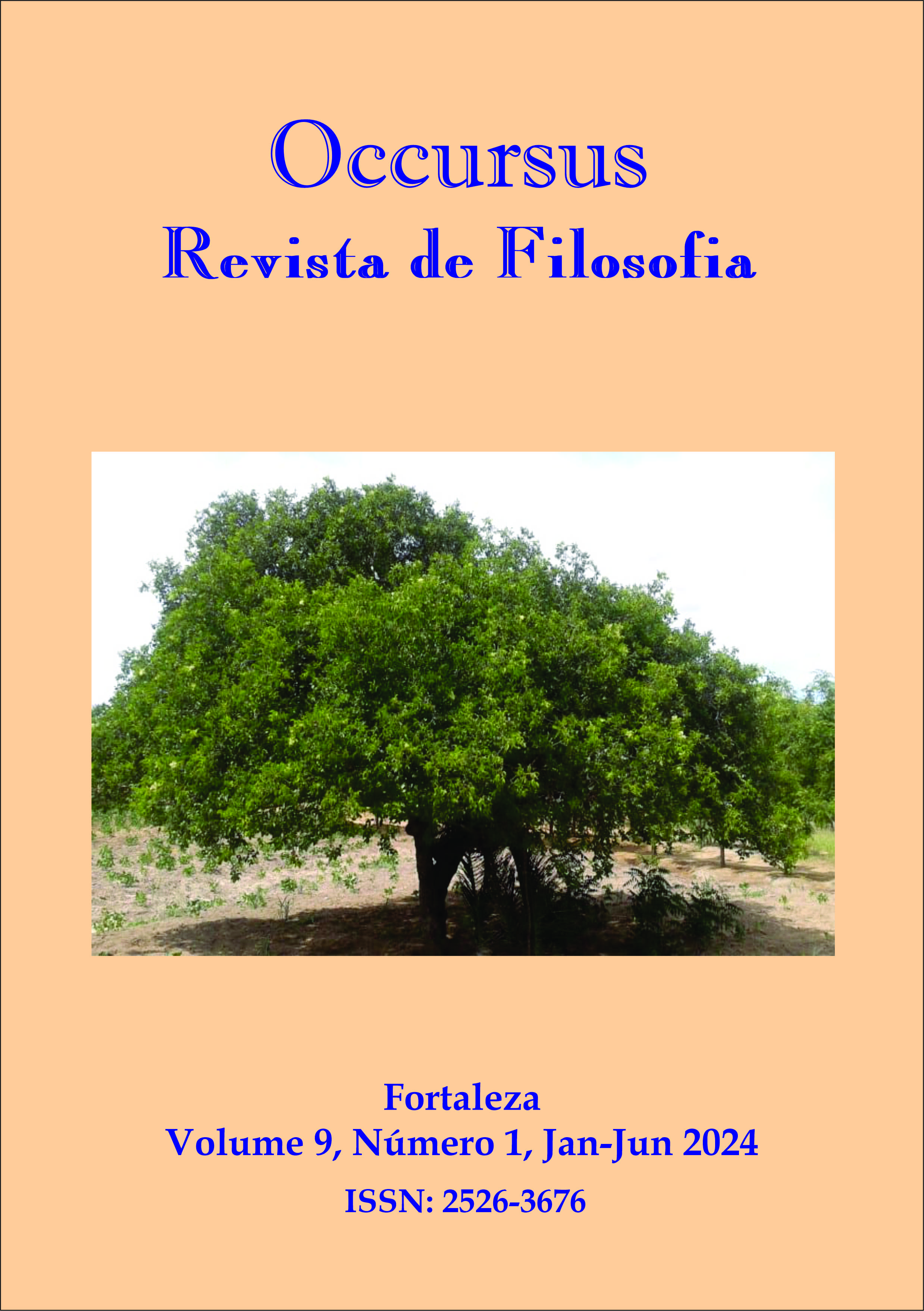The attribution of madness to women as an instrument of social control and domination
DOI:
https://doi.org/10.52521/occursus.v9i1.13105Keywords:
History of Madness. Madness and social control. Women and madness.Abstract
From the analysis of the History of Madness, elaborated by Foucault, the article sought to understand madness as a social fact used as an instrument of power. Based on the archeology of knowledge, how madness was understood throughout history was covered, passing from sacred, in the Middle Age, to being seen as mental alienation in the classical age and, later, with the dawn of the Enlightenment, based on scientific knowledge, understood as a mental illness. From the historical context, it was analyzed how gender issues are articulated with the understanding of madness, specifically, in its attribution to women and the social control exercised over it. It started from the conclusion that madness is used as social control, attributed more strongly to women as an instrument of silencing and domination, to act on their subjectivity.
References
BEAUVOIR, Simone de. O segundo sexo: fatos e mitos. São Paulo: Difusão Européia do Livro, 1980. V. 1.
BOURDIEU, Pierre. A dominação masculina. Tradução de Maria Helena Kuhner. 11. ed. Rio de Janeiro: Bertrand Brasil, 2012.
BUTLER, J. Problemas de gênero: feminismo e subversão da identidade. Tradução de Renato Aguiar. Rio de Janeiro: Civilização Brasileira, 2003.
CUNHA, Maria Clementina Pereira. O espelho do mundo: Juquery, a história de um asilo. São Paulo: Paz e Terra, 1986.
DAVIS, Angela. Mulheres, raça e classe. São Paulo: Boitempo, 2016.
DANNER, F.; OLIVEIRA, N. A genealogia do poder em Michel Foucault. In: MOSTRA DE PESQUISA DA PÓS-GRADUAÇÃO, 4, 2009, Porto Alegre. Anais... Porto Alegre: PUCRS, 2009. p. 786-794.
ENGEL, Magali. Psiquiatria e Feminilidade. In: DEL PRIORE, Mary (Org). História das Mulheres no Brasil. São Paulo: Contexto, 2006. p. 322-361.
FEDERICI, S. Calibã e a bruxa: mulheres, corpo e acumulação primitiva. São Paulo: Elefante, 2017.
FANTASTICO. Isso Tem Nome: entenda o que é 'gaslighting', um tipo de violência psicológica. Fantástico. Disponível em https://g1.globo.com/fantastico/quadros/isso-tem-nome/noticia/2021/10/31/isso-tem-nome-entenda-o-que-e-gaslighting-um-tipo-de-violencia-psicologica.ghtml. Acesso em 29 de junho de 2022.
FOUCAULT, Michel. Doença Mental e Psicologia. Rio de Janeiro: Tempo brasileiro, 1975.
FOUCAULT, Michel. História da Loucura. Rio de Janeiro: Perspectiva, 1972.
FOUCAULT, Michel. História da sexualidade 1 - A vontade de saber. 7. ed. Rio de Janeiro: Graal, 2007.
FOUCAULT, Michel. Microfísica do Poder. Rio de Janeiro: Graal, 1998.
FOUCAULT, Michel. Vigiar e Punir: o nascimento da prisão. 20. ed. São Paulo: Vozes, 1999.
GARCIA, Carla Cristina. Ovelhas na névoa: um estudo sobre as mulheres e a loucura. Rio de Janeiro: Rosa dos Tempos, 1994.
HOOKS, Bell. Intelectuais Negras. Revista Estudos Feministas, Florianópolis, v. 3, n. 2, p. 464, jan. 1995.
ISTO É. Edição 2417 de 06.04.2016. Disponível: <https://istoe.com.br/>, acesso em 28 de junho de 2022.
NASCIMENTO, W. F. DO; ZANELLO, V. Uma história do silêncio sobre gênero e loucura - Parte I. Sobre o que não se fala em uma arqueologia do silêncio: as mulheres em história da loucura. In: ZANELLO, V.; ANDRADE, A. P. M. DE (Orgs.). Saúde mental e gênero: diálogos, práticas e interdisciplinaridade. Curitiba: Appris, 2014. p. 17–28.
PEREIRA, J. F. O que é loucura. 10 ed. São Paulo: Brasiliense, 2005.
PERROT, Michele. Minha história das mulheres. São Paulo: Contexto, 2007.
SCOTT, Joan Wallach. Gênero: uma categoria útil de análise histórica. Educação & Realidade, Porto Alegre, v. 20, n. 2, p. 71-99, jul./dez. 1995.
SOUZA, Cristina Pereira de. Gaslighting: “Você está ficando louca?” As Relações Afetivas e a Construção das Relações de Gênero. 2017. 27 f. Trabalho de Conclusão de Curso – Curso de Psicologia, Universidade Federal do Rio Grande do Sul – Instituto de Psicologia. Porto Alegre – RS, 2017. Disponível em: https://lume.ufrgs.br/handle/10183/179502. Acesso em 20 de junho de 2022.
VEJA. Marcela Temer: Bela, recatada e do lar. Edição de 18.04.2016. Disponível: <https://veja.abril.com.br/brasil/marcela-temer-bela-recatada-e-do-lar/> acesso em 28 de junho de 2022.
Downloads
Published
How to Cite
Issue
Section
License
Copyright (c) 2024 Jaciara Boldrini França

This work is licensed under a Creative Commons Attribution 4.0 International License.




